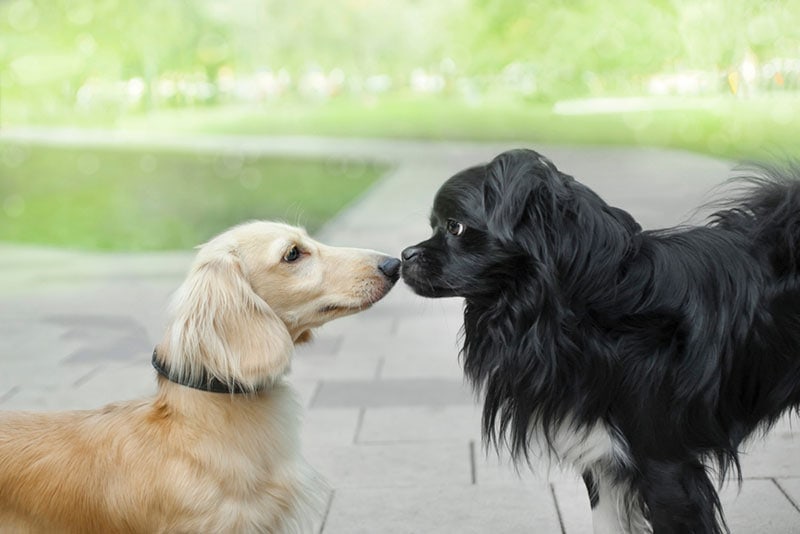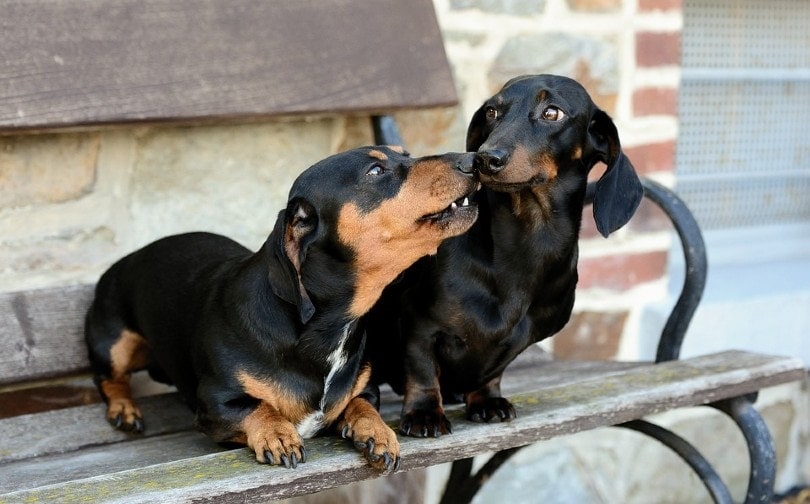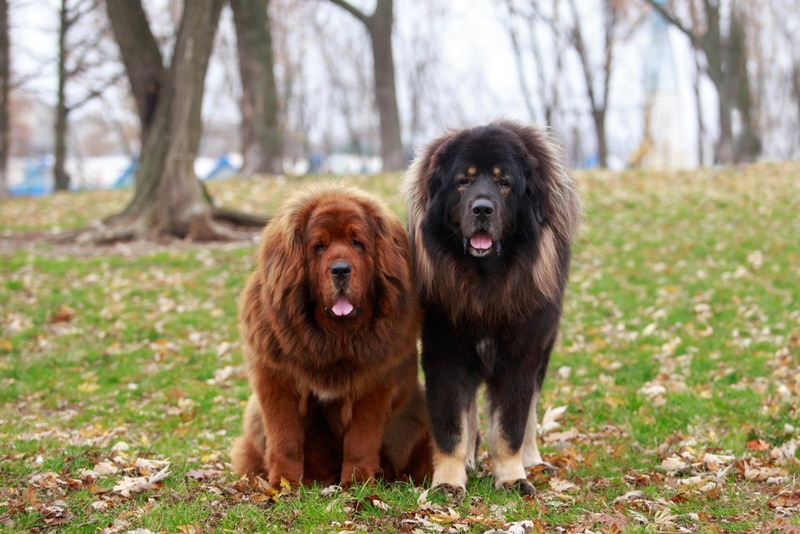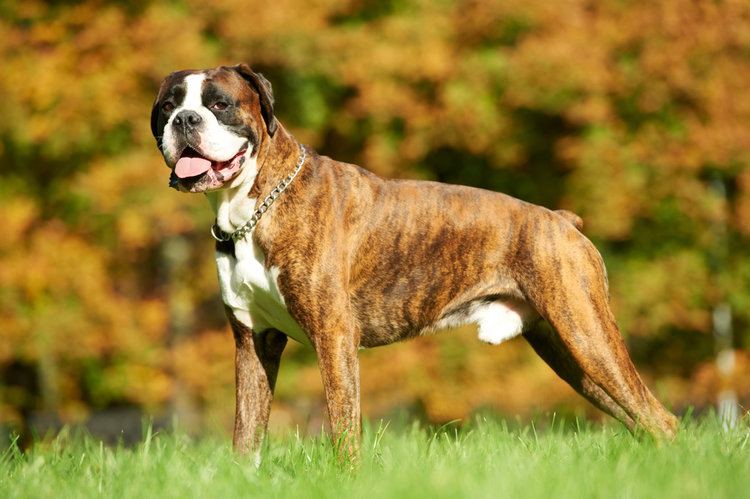Can Dogs Fall in Love With Each Other? Canine Bonding Explained
By Brooke Bundy
Updated on

Like most words in the English language, love depends on how you define it. There is a type of love for a best friend, a lover, a stranger, or a piece of pizza that, while all may fall under the same word when used flippantly, actually signifies very different relationships. Dogs may not buy each other flowers and take each other out on dates, but they do appear to form close bonds with each other—and with different species—in ways that look similar to how we would define love.
Do Dogs Fall in Love With Other Dogs?
The most difficult part about defining love for dogs is that they can’t talk. We are left to deduce answers based on body language, hormones, and brain receptors as opposed to asking them how they really feel.
Scientists have long asserted that dogs don’t “love” their mates. Sexual behavior in the animal kingdom was thought to be something of an obligatory act to populate the earth, as opposed to something that animals actually enjoyed. However, canine behavior seems to suggest that their sexual interactions aren’t solely reproductive.
For example, neutered dogs sometimes still possess a sex drive. Humping other dogs and their toys is a pretty normal behavior for all dogs, regardless of whether they’re fixed or not. Sometimes this behavior is seen as a domineering behavior, such as a male dog on a male dog. However, this doesn’t explain why a dog targets their toys or canines of the opposite sex.
A neutered male may even attempt to mate with a spayed female. This doesn’t happen all the time but isn’t altogether uncommon. Most female dogs won’t attempt to mate unless they’re in heat. Even an unspayed female won’t typically seek out a partner unless she’s in heat and will try to dissuade potential partners when it’s not time for mating in her cycle. Anecdotal tales do abound, though, of spayed females and neutered males coming together, seemingly just for the fun of it.

Do Dogs Love Other Dogs?
When humans “fall in love” chemically, a rush of oxytocin, dopamine, and norepinephrine are released in our brains. Oxytocin is the most well-known hormone. Known as the “love hormone,” oxytocin strengthens different types of love bonds in humans, from infants and mothers to brothers and lovers. A 2014 study from Emory University in Atlanta,1 Georgia shows that the same is true for dogs!
Researchers sprayed dogs and humans with oxytocin and a placebo to see if the hormone influenced a canine’s ability to bond with others. The dogs were more likely to bond with the humans and dogs who were sprayed with oxytocin compared to the ones with the placebo, suggesting that hormonal attachment does play a part with dogs.
On an anecdotal note, there are countless stories of dogs becoming inseparable at the dog park or even refusing to be adopted into separate homes from the shelter. Whether it’s a strong friendship, romantic attachment, or a dog that’s adopted a young puppy that isn’t her own, it’s clear that dogs do form close bonds with other dogs that mimic the human concept of love. This love doesn’t seem to be founded merely on a hormonal basis or a rewards system, but on intentional action that involves looking out for the better interest of the other party. For example, what does it benefit a dog to care for a young puppy that’s not related to them? And yet, it happens all the time.
Do Dogs Love Humans?
There’s no question that we love our dogs. Oftentimes, our motivating thought as we trudge home from another day at the office is the thought of our loyal canine friend waiting for us at the door. But do our dogs feel the same way about us? Or, as skeptics have callously proposed, are our dogs simply using us for food? A new study says that not only do our dogs love us, but they also value our praise just as much as they appreciate their favorite snack.
A 2013 study from Emory University put dogs under an MRI machine while they were exposed to different smells. Out of all of the smells they were subjected to, ranging from other canines to hot dogs, the rewards part of their brain responded most positively to human praise and the smell of their favorite person and dogs they live with. This study shows us that dogs love the people and dogs they live with more than dogs they don’t know and possibly even more than food. That’s a pretty strong statement from a species that we’ve assumed was all about its own survival.

Final Thoughts
While they may never write each other songs or tell us how they really feel, dogs form bonds with each other and their people in a similar way to how humans form close social bonds. Science and stories both attest that canines may experience love in a similar way that we do. Oxytocin plays a role in facilitating relationships with humans and other dogs, and so does a dog’s sense of smell. Their selfless behavior suggests that their bonds are deeper than simple chemical connections. They may consciously choose each other and us even when it doesn’t benefit them. After all, the canine participants in the Emory Study showed more positive reception towards other dogs in their household and their favorite humans than they did towards food. If that’s not love, what is?
See Also:
- Can Dogs Be Gay? Animal Sexual Behavior Explained
- Are Dogs Usually Monogamous? Science, Facts, & FAQ
Featured Image Credit: yulana, Shutterstock











